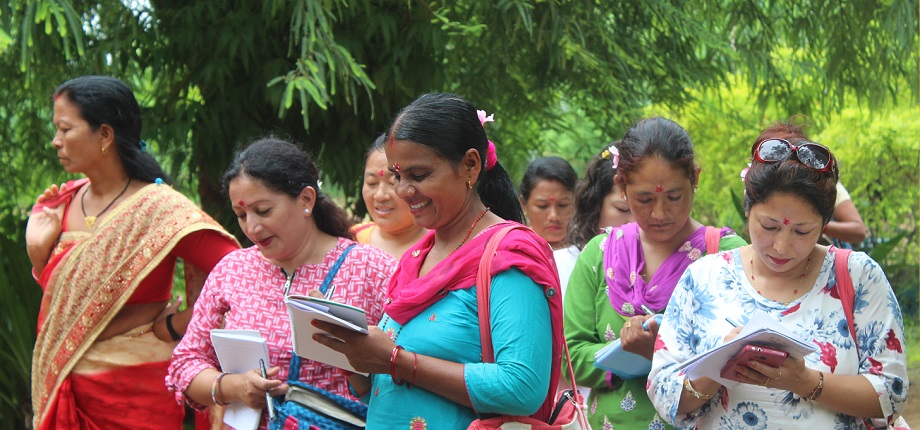區域和全球計劃
森林与农场基金定期面向全球及区域性森林和农场生产者组织征集优秀项目提案,以便为其提供支持。2019年,森林与农场基金重点关注各个组织如何改善成员服务。森林与农场基金选中三个区域性组织(分别位于非洲、亚洲和拉丁美洲)和一个全球性网络进行合作,并给予经费支持。这三个组织开展以下方面的工作:
- 加强性别主流化及/或支持年轻人参与;
- 推动更具包容性的治理和跨部门进程,或对此类进程产生影响;
- 围绕加强创业精神、市场准入和融资以及商业开发服务开展能力建设工作;
- 改善基于景观尺度的气候变化减缓、适应和抵御计划的执行工作;和/或
- 围绕改善社会和文化服务的获取,以及确保获取过程的公平性开展能力建设工作。
非洲
西非农民组织及农业生产者网络(法语缩写为ROPPA)联合了15个国家的147个基层生产者组织,每个组织都有自己的国家级平台。ROPPA的首要使命是确保农林牧渔政策基于家庭农场模式,以保障粮食主权。
ROPPA和森林与农场基金合作,通过记录所选家庭农场的创意和实践,让农民组织了解更多关于可持续森林管理的知识。基于这些创意和良好实践,ROPPA组织对话和交流研讨会,向其它成员普及相关知识。
ROPPA的另一个目标是通过制定在立法层面保护森林区域的行动报告和组织相关讨论,对农林牧渔政策产生直接影响。
ROPPA的最后一个目标是致力于推广可利用或可营销的森林产品,支持社区森林区域的保护。ROPPA围绕这一目标开展活动,号召妇女和年轻人参加交易会,并鼓励西非人民以及非洲其它地区相关领域的工作人员之间开展交流活动。
亚洲
农村可持续发展亚洲农民协会(AFA)是由分布于亚洲16个国家的20个国家级农民组织组成的联盟,约有1300万名个人会员。AFA的目标是增强国家级农民组织领导者和技术人员的能力,帮助消除贫困和饥饿、提高抵御力,为家庭农民谋福利。
在森林与农场基金的支持下,AFA将增强森林和农场生产者组织中年轻农民领导者的声音和主张。AFA主张在“联合国家庭农业十年”的框架下建立可持续、具有抵御力、基于农林业的性别和青年敏感型生计。例如,青年农民委员会将参加领袖训练营,使他们能够帮助十个国家(菲律宾、印度尼西亚、柬埔寨、老挝、缅甸、越南、尼泊尔、印度、蒙古和吉尔吉斯斯坦)更好地制定青年农民行动计划。
在此基础上,AFA将通过组织区域交流活动以及支持开展交流活动,为政策制定者提供推动青年创业的建议,从而增强制定跨部门的多方利益相关者政策,提高森林和农场生产者组织中青年农民委员会的代表性。
拉丁美洲
中美洲民族与森林联盟(西班牙语缩写为AMPB)是管理或影响中美洲主要森林区域的十个领地当局之间进行协调和交流的平台。联盟中的原住民政府和社区林业组织寻求增强互相之间的对话(对话侧重于自然资源的社区管理),共同致力于影响政府和国际合作,以使生物多样性保护和气候平衡战略能够妥善地考虑到原住民族和森林社区的权益。
AMPB性别委员会的工作主张与该地区的需求最为相关。委员会与森林与农场基金合作,推动能够为基层企业提供积极商业环境的政策。这包括,根据当地群体的需求,制定不带种族和性别歧视的金融计划和产品。在全球层面,AMPB的妇女领导者在联合国气候变化框架公约缔约方大会等重要政策活动以及相关平台提出主张。
在当地层面,原住民妇女组织致力于自我赋权,以改善她们的商业能力。这包括但不限于:
- 危地马拉玛雅坚果的商业化新计划;
- 增强原住民蔬菜生产系统;
- 在尼加拉瓜制定国家级商业计划;以及
- 扩充巴拿马安倍拉妇女银行的资金。
Global programmes
Global Alliance of Territorial Communities
The Global Alliance of Territorial Communities (GATC), is an alliance between the Alliance of Indigenous Communities of the Indonesian Archipelago (AMAN), the Mesoamerican Alliance of Forest Peoples (AMPB), the Coordination of Indigenous Organizations of the Amazon Basin (COICA), the Network for Sustainable Management of Forests in Central Africa (REPALEAC), and the Articulation of Indigenous Peoples of Brazil (APIB). In total, the Global Alliance represents indigenous peoples and local communities in 24 countries.
These alliances work together on five key messages:
- The rights of indigenous peoples and local communities over the lands they occupy must be recognized
- Any intervention in these territories must go through a process of free and informed prior consent
- Direct access of their organizations to climate funds for the protection and management of these territories
- Their leaders should not continue to be criminalized or killed
- All policies developed in their territories must take into account their traditional knowledge
An example of the Global Alliance’s work is the Shandia initiative, which involves setting up financing mechanisms, such as the Mesoamerican Territorial Fund (FTM) to strengthen or create local capacity to absorb climate finance, such as the $1.7 billion in financing that was pledged to reach local communities directly at COP26.
Inter-Continental Network of Organic Farmer Organisations
The Inter-Continental Network of Organic Farmer Organisations (INOFO) is a global leading organic farmers’ network. INOFO fosters a new connection among established associations of Organic farmers, harnessing the potential of a bottom-up, farmer-led approach. INOFO aspires to excel FFPOs as the key change agents in delivering climate resilience landscape and improve the livelihoods.
INOFO organic member FFPOs are present in 6 countries in Asia, 15 in Africa, 24 in the Asian Pacific, 3 in Latin America, 2 from North America and 27 in Europe. With the worldwide diversity of organic farmers growing a variety of crops, INOFO already contributing to one of the major solutions needed for climate-friendly, sustainable food systems. Harnessing the diverse skills, knowledge and connections of its members, INOFO devises strategies to ensure food security for present and future generations. Through advocacy, it champions shared objectives related to food sovereignty, including concerns like public policy, farmers' land rights, climate resilience, production standards, marketing negotiations, research, training, and education. INOFO also focuses on engaging youth in professional platforms to preserve social and environmental well-being in communities. Lastly, the organization aims to raise awareness about the challenges faced by small-scale organic farming by openly addressing the global realities farmers encounter.
With FFF support, INOFO works on facilitating and promoting peer to peer knowledge exchange among INOFO’s organic farmers organisations’ value chain in member regions of Latin America, Africa and Asia.
World Rural Forum
The World Rural Forum (WRF) is made up of family farming federations and organizations and promotes family farming and sustainable rural development. Its work focuses on the fact that women represent an average of 43% of the agricultural labour force in developing countries but constitute less than 20% of landholders, and that almost 80% of the world’s extreme poor live in rural areas and work in agriculture. WRF groups entities that represent over 35 million family farmers.
WRF works with 10 member farmers’ organisations in five continents:
- Northern Africa (UMNAGRI, Union Maghrébine et Nord Africaine des Agriculteurs)
- Central Africa (PROPAC, Plateforme Régionale des Organisations Paysannes d'Afrique Centrale),
- South and East Africa (ESAFF, Eastern and Southern Africa Small Scale Farmers’ Forum and REFACOF, Réseau des Femmes Africaines pour la gestion Communautaire des Forêts)
- West Africa (CRU-BN, Coordinación Regional de usuarios y usuarias de los recursos naturales de la Cuenca del Níger)
- Central America (PDRR, Programa de Diálogo Regional Rural; AACARI, Agriculture Alliance of the Carribean)
- South America (COPROFAM, Confederación de Organizaciones de Productores Familiares del MERCOSUR), and
- Asia-Pacific (AFA, Asian Farmers Association, and PIFO, Pacific Island Farmers’ Organization).
With FFF support, WRF strengthens the capacities of FFPOs to promote policy and legal frameworks conducive to the economic empowerment and livelihood resilience of rural women, seizing the opportunity of the implementation of the United Nations Decade of Family Farming 2019-2028 (UNDFF). WRF also works to put smallholder FFPOs at the centre of climate and nature/biodiversity policy processes by strengthening advocacy capacities and FFPOs’ participation in local, national, regional, and global political dialogue spaces.

